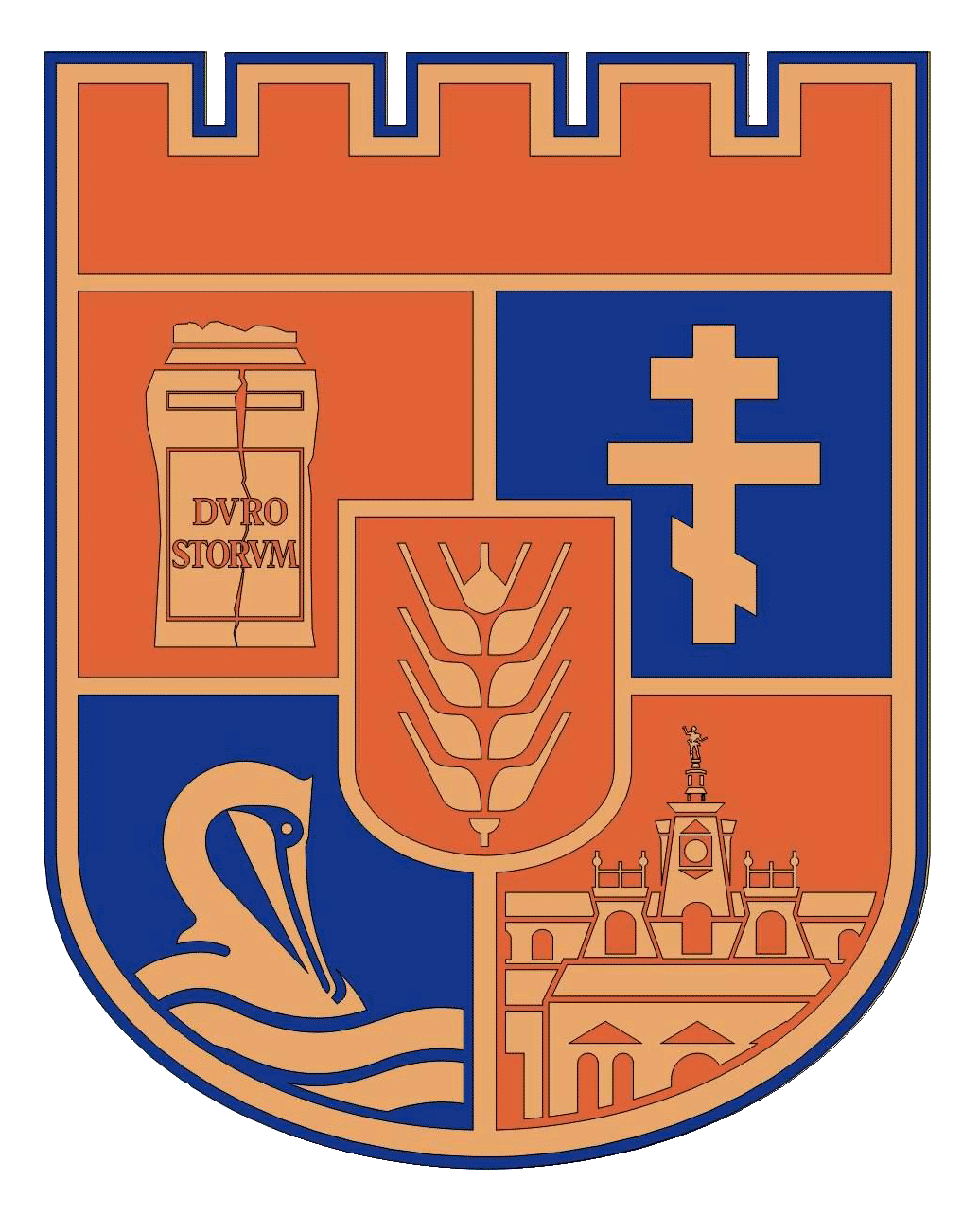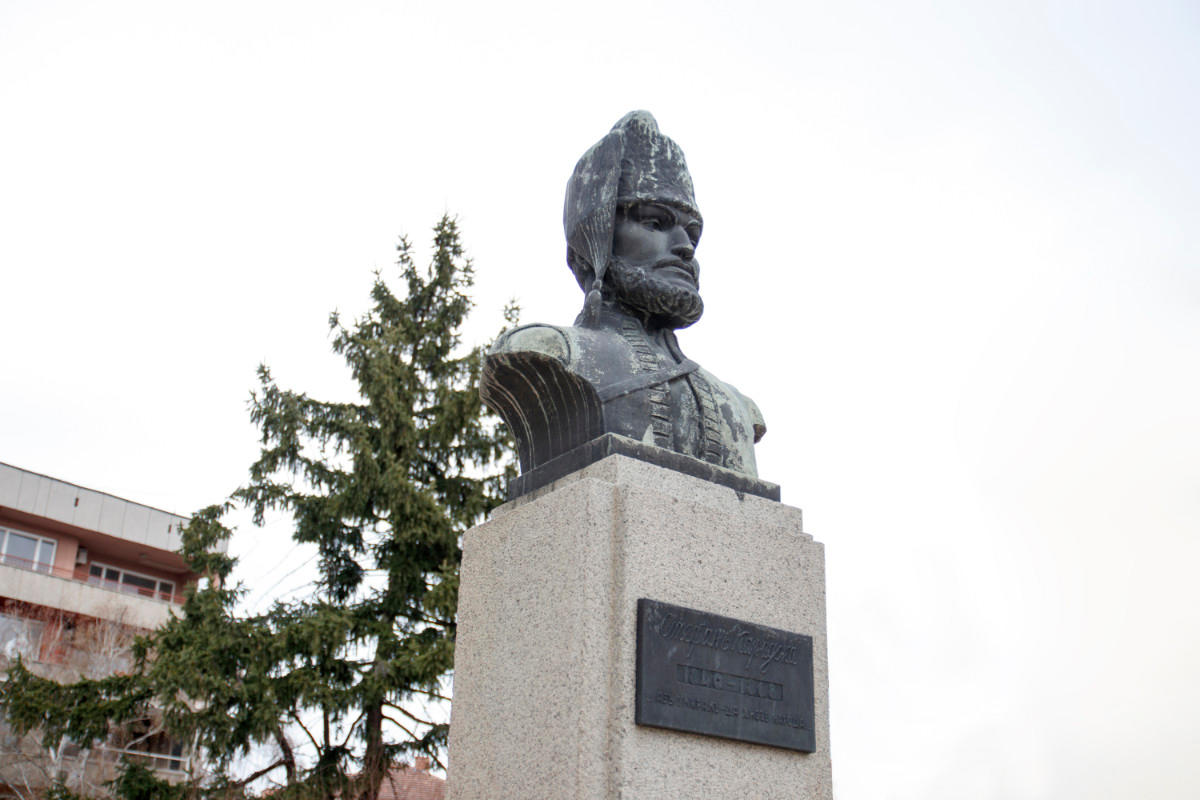Stefan Karadzha monument
Category MonumentLOCATION
The monument of Stefan Karadja, known as the Apostle of Freedom, a prominent Bulgarian revolutionary, is located to the Art Gallery, in the space between the streets "Simeon the Great", "Patriarch Damian" and "G.S. Rakovski", in the Danube Park in the town of Silistra, 429 km away from Sofia. There is a bus three times a day leaving from the Sofia Central Bus Station to Silistra, as well as a train three times a day from the Sofia Central Railway Station.
DESCRIPTION
The monument of Stefan Karadja, a Bulgarian revolutionary and a national hero, is a bronze sculpture - a bust made by the sculptor Pavel Meteorov. It was opened in 1941.
HISTORY
The Stefan Karadja monument was opened on October 1, 1941 in honor of the first anniversary of the return of Silistra and Southern Dobrudzha to the borders of Bulgaria. The ceremony was attended by politicians, public figures, clergy and many citizens of Silistra. The monument is the work of the local sculptor Pavel Meteorov. The sculptor / author of the monument was born in 1900 in the town of Silistra. He graduated from the Royal Academy of Fine Arts in Brussels, Belgium. He died in 1977 in Sofia.[1]
Stefan Dimov, called Stefan Karadja, is a Bulgarian revolutionary and national hero who fought for the Liberation of Bulgaria from Ottoman domination. He was born on May 11, 1840 in the village of Icheme (today Stefan Karadjovo), Yambol. He is among the first volunteers in the First Bulgarian Legion in Belgrade organized by Georgi Rakovski –an ideologist of the Bulgarian national liberation movement. He demonstrated great courage in the battles with the Turks. After the dissolution of the legion, Stefan Karadzha returned to Romania, where he dedicated himself to the people's struggle. He crossed the Danube River several times in order to carry revolutionary tasks. In 1866 he joined a small cheta led by Hadji Dimitar and Zhelyu voivoda, with which he went to the right bank of the Danube. In 1867 he also took part in the Second Bulgarian Legion. In 1868, after the dissolution of the Legion, he returned to Romania, where he reunited with Hadji Dimitar. On July 6, the two heads of a cheta of 127 people crossed the Danube River in the village of Vardim. In the battle that took place near Vishovgrad, Stefan Karadja was seriously wounded and captured by the troops and police sent by the President of the State Council, Middhad Pasha. On July 12, he was taken to Turnovo and later to Rousse.
Evidence about his death coming from various authors is controversial, and it is unclear whether he is hanged or dies in prison from illness or from his wounds. According to some sources, he was in a very poor state of health and yet sentenced to execution. He died in 1868. He was buried by Baba Tonka (Tonka Obretenova), a famous Bulgarian revolutionary and mother of five children, also revolutionaries. It is believed that she has preserved his skull and after the Liberation, a reconstruction of the gallows and a procession with the skull of Stefan Karadzha were made in 1918. In 1966 the skull of Stefan Karadzha was taken to Russia for plastic reconstruction, which, since 1968, is stored in the Baba Tonka House Museum in Rousse. The original tombstone of Stefan Karadja was found during the construction works at the Baba Tonka House Museum in January 2014.
It is believed that in Stefan Karadja's oldest sister Turna created his first monument in his home. Today, there is another bigger monument in front of Stefan Karadzha's home. The house’s well which is reported to have been a playing spot for him as a child is also preserved.
The citizens put wreaths and flowers at the solemn celebration of events from Bulgarian history. The anniversaries are celebrated on 2 June in front of the monument of Stefan Karadzha.
Each year the citizens of Silistra offer wreaths and flowers to the monument as a sign of appreciation for the anniversaries of his birth and death. There are Stefan Karadzha monuments as well as many memorial tablets in several towns in Bulgaria. A peak in the Antarctic Peninsula in the Antarctic Continent has been named after the revolutionary.[2]
SITE SIGNIFICANCE
Stefan Karadzha is a Bulgarian revolutionary and national hero who fought for the Liberation of Bulgaria from Ottoman domination. The monument is a symbol of pride of the citizens of Silistra.
VISITOR INFORMATION
It is located outside and it`s free to visit
OTHER INFORMATION
Monumental monument
[1] Websilistra.net <http://www.websilistra.net/%D0%B4%D1%83%D1%85%D1%8A%D1%82-%D0%BD%D0%B0-%D1%81%D0%B8%D0%BB%D0%B8%D1%81%D1%82%D1%80%D0%B0-%D0%B7%D0%B0-%D0%BF%D0%B0%D0%BC%D0%B5%D1%82%D0%BD%D0%B8%D1%86%D0%B8%D1%82%D0%B5-%D0%BD%D0%B0-%D1%82%D0%BE/> (24.04.2018)
[2] Utroruse.com. <https://utroruse.com/article/729884/> (24.04.2018)




